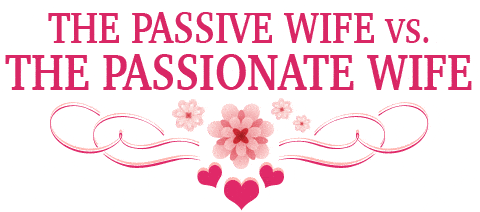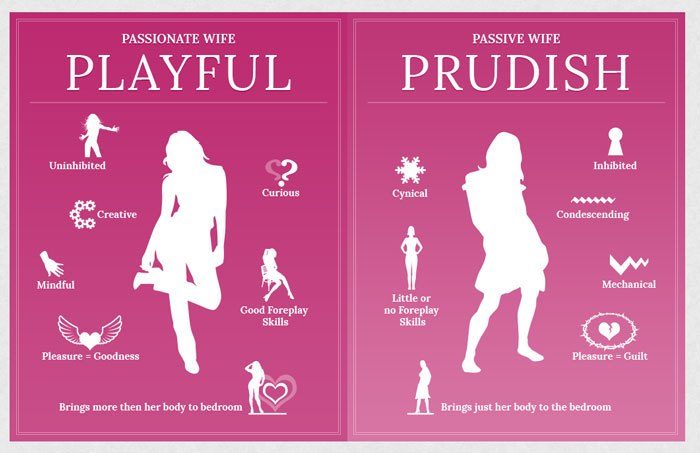
Before you answer that question, I believe it’s important that you know who the passionate woman is and who she is not. To explain that difference, I’d like to share with you the story of the 1947 Cheval Blanc, otherwise known as the most faked wine in the world.
The Most Faked Wine in the World
If you’re a wine lover, chances are, you’ve heard of the 1947 Cheval Blanc — the most celebrated wine of the 20th century. If you’re not a wine lover, maybe you remember it as the wine the feared food critic Anton Ego ordered in Disney’s Ratatouille. If it didn’t catch your attention then, maybe it has now, because a six-liter bottle of 1947 Cheval Blanc recently set the world record price for a single bottle, when it was sold to a private collector for $304,375 (£192,000).
In other words…
If the 1947 Cheval Blanc were a diamond, it would be the Hope diamond. If it were a car, it would be a Bugatti. If it were a religious relic, it would be the Holy Grail.
What it comes down to is this:
The ’47 Cheval Blanc is the wine all serious wine lovers want to experience before they die. It’s the wine that even the most jaded aficionado will travel thousands of miles and pay thousands of dollars for, to taste.
As cool as all that may be, in my opinion, it’s not the price, taste and mythology of this vintage that makes it so interesting. What makes it really interesting to me is the birth story of this wine.
Here’s how the story goes (as told by Mike Steinberger):

The birth of the 1947 Cheval Blanc can only be described as a happy accident of nature, because this wine was born of aberrant weather. The summer of 1947 was almost Biblical in its extremity, and the grapes had more or less roasted on the vine. Then, it was vinified under primitive conditions, because back in those days, wineries were not yet temperature-controlled, so the fermentation process was medieval at best. Yet, from this impossible beginning came a wine that has become the modern-day yardstick against which other wines are measured, the benchmark to which all winemakers aspire. As another expert puts it, “When you consider the fact that this wine is, technically, appallingly deficient in acidity and excessively high in alcohol, then by all accounts this is a wine that should have been destroyed by its defects.” But that’s not what happened. So, the ’47 Cheval has become known as the “miracle wine” because after 55 years, the wine is still remarkably fresh, phenomenally concentrated and profoundly complex.
What's the secret of the 1947 Cheval Blanc?
Most experts agree that it comes down to the following:
- The ’47 Cheval is not a wine that someone contrived to make; it’s a wine that essentially made itself.
- In this wine, the flaws inexplicably became virtues. The faults became qualities, and the excesses produced an exceptional wine.
- The growers were smart enough to recognize that Mother Nature was going to have her say in the making of this wine, and they were courageous enough to stand aside and let it happen.
Because of this confluence of risk, uncertainty and impossible odds in summer of 1947 on the right bank of the Gironde River, a legend was born.
Today, the 1947 Cheval Blanc has the double honor of being the most sought-after wine AND the most faked wine in the world. Because according to Serena Sutcliffe, the wine director of Sotheby’s, there are more bottles of ’47 Cheval Blanc in the market than were ever produced.
What does the 1947 Cheval Blanc have to do with being a passionate woman?
Well, I believe the two have a lot in common. Here’s what I mean.
It’s been my observation that the world is divided into two kinds of women: passionate women and passive women. And the difference between these two women comes down to the same key differences that make the ’47 Cheval Blanc different from all the rest.
Just like a genuine 1947 Cheval Blanc…
- A passionate woman is not a woman anyone “contrives” to be; she is the author of her life.
- A passionate woman is one who is able (willing) to love herself “as is,” therefore all her flaws inexplicably become virtues.
- A passionate woman is one who is smart and intuitive enough to recognize that the divine made her for a purpose, and she is courageous enough to get out of her own way.
- As in the birth story of the ’47 Cheval Blanc, a passionate woman is not inevitable. She is not the product of privilege, good looks, status or perfect childhood, but more likely, the product of impossible odds, difficult circumstances and tragic conditions — all of which combined to create a miracle. And perhaps most significantly…
- Just like a 1947 bottle of Cheval Blanc, the passionate woman also has the double distinction of being the most sought-after AND the most faked woman in the world, because more women are faking passion than are genuinely living passionately.
How can you spot a real passionate woman in a world filled with imitations? I think that’s a great question. Helping you find the answer is what this article is all about.
The way I see it, the type of woman you are determines the type of wife you become, and basically, the world is divided into two types of married women — those who are passionate and those who are passive.

Who is the passionate wife?
I define the passionate wife as any married woman who takes an active role in creating the conditions by which love and passion can continue to grow in her marriage.
Who is the passive wife?
I define a passive wife as any married woman who defaults (or ignores) her responsibility to create the conditions by which love and passion can continue to grow in her marriage.


Men find passionate women fascinating.
If there’s one quality in a woman that every man is attracted to, that quality is passion. Because a passionate woman is an intriguing blend of innocence, playfulness, sensuality and confidence, she is captivating and fascinating to the opposite sex.

Passionate wives bring more to their marriages.
Passion is an inexhaustible source of creativity and newness, and when you channel its creative energy into a marriage, the result is that something extra that allows a couple to remain passionately connected to each other for years. Therefore, life with a passionate wife is bound to be filled with newness, laughter, fun and surprises — these make the man she marries count himself lucky she chose him.

Passionate wives make better lovers.
The key question: Why isn’t every woman a passionate wife? Maybe the thought has already occurred to you: If passionate wives have more fun, enjoy better sex and build stronger marriages, why isn’t every married woman a passionate wife? I believe that’s a great question.
Here’s my theory. I believe the reason why not every woman embraces the role of a passionate wife comes down to two things:
Problem #1: Misguided beliefs about passion
Problem #2 Failure to make the connection between passion and fidelity
Let’s clear up the first problem by banishing some of the myths and false information about passion right now.
Banishing The Myths About Passion

MYTH 1: The decline of passion is natural in long-term relationships.
Fact: The exact opposite is true: The decline of passion for the people and things you love is unnatural. Alas, many believe the myth that the decline of passion in long-term relationships is natural and fail to question its decline, choosing instead to simply ignore it or seek ways to escape or look for distractions, to help make the intolerable tolerable. But there’s no need to do that. The truth is that with time, attention and specific rituals of pleasure, the passion between two people can be renewed endlessly.
MYTH 2: Passion and love can be treated the same way.
Fact: While love is like the sun (it burns without help), passion is like a fire — if left unattended, it goes out. This means that passion should never be ignored, neglected or taken for granted. It requires consistent attention, effort and nurturing to keep it alive. This is why it’s the loss of attention rather than any natural process that creates the decline in passion.
MYTH 3: Passion is physical.
Fact: Passion is energy. It’s an expression of our creative sex energy. This means it’s not created; it’s unblocked. It’s not physical, but it can be experienced via physical senses. Think of passion as a wave of electric current — you don’t create it; you connect to that wave of energy within you. Therefore, the secret to igniting passion is not found in trying to create passion, but rather, in removing obstacles to the connection. (Obstacles such as stress, tension and guilt, to name a few.)
MYTH 4: Passion is found in sex.
Fact: Passion is NOT found in sex. Passion is in people. Without passion, sex becomes nothing more than basic reproduction. Any animal can do it. Therefore, it’s important to note that you don’t find passion in the bedroom; you bring it to the bedroom. The key to passionate sex is found in passionate people. If the fire of passion is to be ignited within the individual (and it is), then playfulness is the spark. This is because enjoyment is the calling card of passion. Because you’re passionate about the things you enjoy, you can enjoy the things you’re passionate about over and over again, forever.
Now that we’ve cleared the confusion about passion, let’s tackle the second obstacle.
Making the Connection Between Passion and Fidelity
Let me ask you a question.
What is sex without passion? If you said boring, you’d be right. And what’s one of the leading contributors to infidelity? If you said boredom, again you’d be right.
What does this tell you?
It suggests that the decline of passion in a monogamous relationship is not only tedious, it’s dangerous because it leaves the marriage vulnerable to infidelity. Which is why I’m willing to go out on a limb and say: Passion and fidelity are linked like a finger and thumb. One helps the other to work.
Bottom line?
The difference between being a passionate wife and being a passive wife comes down to a woman’s core beliefs about love, loyalty and passion:
- A passionate wife places a high value on keeping the passion alive — the passive wife does not.
- A passionate wife is willing to learn how to create the conditions by which passion is continually renewed — the passive wife is not.
- The passionate wife believes that passion is a renewable resource — the passive wife believes it’s a limited resource.
- The passionate wife knows that passion must be continually renewed through conscious effort and attention — the passive wife neglects the fact.
Your Moment of Truth
Now that you have a better idea of the differences between a passionate wife and a passive wife, it’s time to answer the most important question of all: Which type of wife have you been? Have you been more of a passive wife or more of a passionate wife? For some readers, the answers will be obvious. For many, it’s just not that easy to say. If you’re among the majority who can’t be sure where you fall, then I suggest you take the time to review and honestly answer the following guided questions.
Your mission (should you choose to accept it):
Read each of the following questions — not from a place of competition, but from a place of curiosity. Be willing to give yourself credit where credit is due, and be willing to embrace change when change is due. And remember: What works for others isn’t what’s important. What’s really important is discovering what works for you. With that said, here they are.

01: Are you still a curious kitten, or have you become a cynical old cat?
Why This Question Matters
We can learn a lot from our feline friend, the cat. For example, cats operate on the principle that it never does you any harm to ask for what you want. Like a cat, every woman has a fondness for stroking, touching and cuddling. What makes a cat an example for the bedroom are its two key traits: 1) By nature, all cats are curious and playful; and 2) Like ours, a cat’s instinct for play and curiosity has a way of fading over time. When a cat loses its playful curiosity, it can end up as a haughty and somewhat contemptuous version of itself, the kind of cat that people (especially men) find unappealing.
In the Bedroom…
A passive wife is cynical and condescending like an old cat. A passionate wife remains as playful and curious as a new kitten.
Key Point:
Cynicism, contempt and a been-there-done-that attitude are warning signs of play deprivation. So, if you’ve noticed yourself moving more towards cynicism and away from curiosity in the bedroom, here are some suggestions to swing the pendulum back in your favor.
Do this:
Sharpen your charms, not your claws. There are plenty of places where you need to compete, fight and battle. Your bedroom is NOT one those places; therefore, bring no weapons of war or attack. Instead, make it a point to bring in only the toys and tools that encourage love and play.
Use curiosity as the path to satisfaction. Curiosity is a thirst that demands its own satisfaction. Whatever your curiosity, you will be motivated to satisfy it. Use that thirst of curiosity to seek and find new and interesting ways to experience sexual and emotional satisfaction in your bedroom.
Discard the mental habits that block playfulness. 100% of the time, you are dealing with states of mind, and playfulness (like happiness) is a state of mind. The good news is that it’s a state of mind that exists in you as naturally as in cats. You don’t create it; you simply need to connect to it. Your job then is to remove the obstacles that block that connection. The #1 barrier? Negative mental habits. Make it a point to banish negative mental habits and you will rediscover that natural state of playfulness.
02: Does your mind (thoughts) wander like smoke during sex, or are you fully present in mind and body?
Why This Question Matters
Women respond during sexual intimacy in one of two ways: mindfully or mechanically. If a woman is responding mechanically, she is simply going through the motions and playing a role — her body is present but her mind is absent. However, if she is responding mindfully, her total being is present to the experience. She is IN her body, IN the moment, and INTO everything that’s happening.
In the Bedroom…
A passive wife is mechanical, like a doll. A passionate wife is mindful, like a geisha.
Key Point:
No woman is designed to lie down passively like a centerfold in the bedroom or to respond mechanically to sexual touch. Women are designed to feel deeply and love fully. They are predisposed to playfulness, curiosity and openheartedness. If you’ve noticed that your sexual responses have become more mechanical than mindful, these simple exercises will help.
Do this:
Bring more than your body to the bedroom. Sex is more than skin-deep. It’s a shared mental, physical and emotional connection between two people that can go all the way to soul-deep if you let it. However, to have that next-level experience, you’ve got to bring more than just your body to the bedroom. You have to show up fully — mind, body and soul — and be willing to grant your partner access to all of you.
Practice hyper-awareness. Hyper-awareness is a mindfulness technique that magnifies sensory data. The key is to stay aware of even the smallest sensory changes: skin heating up… breath slowing down… blood pumping… eyelids drooping… saliva forming… tongue swelling against the roof of your mouth… and so on. By focusing and magnifying your sensory experiences, you’re able to experience them more fully.
Adopt the “be-here-now” mantra. It’s been said that the secret to enlightenment is found in one statement: Be here now. Not only is it the secret to enlightenment, it’s also the secret to sexual happiness. The willingness to be here now is what transforms sex from mechanical to magical, and what transforms intercourse into intimacy.
Let’s look at the next guiding question…
Dealing with Inhibitions in the Bedroom
03: Is the list of what you won't do longer than the list of what you will do?
Why This Question Matters
Sexual inhibitions are beliefs that suppress your natural sexual expression. If the list of what you won’t do is longer than what you will do in the bedroom, chances are, you’re running into the walls created by your inhibitions.
Here are a couple of things you should know about sexual inhibitions:
- Sexual inhibitions are like mothers, we all have them.
- Sexual inhibitions are not really about suppressing sex; they are about suppressing pleasure.
One of the rites of passage from girlhood to womanhood is the shedding of culturally programmed inhibitions, the discovery of one’s sexual self and the awakening of one’s desire for sexual fulfillment. Alas, some women never make that shift; they remain sexually passive and unawake their entire lives.
In the Bedroom…
A passive wife defends, justifies and cherishes inhibitions. A passionate wife discards inhibitions like cheap jewelry.
Key Point:
Although every woman has inhibitions, no woman has to keep them. So, if you’re in a good marriage yet you have been unable to allow yourself (or your partner) sexual expression, here are some key insights to help free you.
Do this:
Link pleasure to goodness, not guilt. What’s the #1 method to suppress enjoyment of pleasure in our western culture? If you said guilt, you’d be right. (Being Catholic, I could write a whole book on guilt and sex.) However, once you become a rational, self-directed, well-adjusted adult, your task is to recognize that sex is the most common activity in the universe (except for sleep). And the fact that for humans, pleasure is a part of the process is not something to reject, but something to embrace. Because if God (life, nature, or higher power) wanted, we could easily have been hard-wired for simple procreation and replication (like ants, bees, or bats), with no accompanying pleasure needed to come along with it. The fact that we’re built so that pleasure and sex are linked IS a good thing! So forget the guilt — enjoy the gift of pleasure.
Banish the inner critic from the bedroom. You’ve heard it before: There’s a time and place for everything. Well, the time and place for your inner critic (the voice of perfection) and its twin (the voice of censorship) is not in the privacy of your bedroom. From this day forward, make it a rule never to bring your inner critic to bed with you. Banish those voices at the door. Write an actual note and put it on your bedroom door, if you have to. Do whatever it takes to make sure it’s known to one and all: No critics permitted here.
Let yourself open like a flower. In the bedroom, a passionate wife opens like a flower, while a passive wife is closed like a bud. And what is a bud but a flower that has not yet matured? Therefore, passiveness does not have to be a permanent state. Your transition to sexual maturity depends on your willingness to open up and grant a man access to your inner sensual garden. Do this, and the rewards are endless.
04: Is foreplay his responsibility or a mutual responsibility?
Why This Question Matters
The reality is that many wives are more comfortable with male-initiated and male-dominated sex, so they take little or no responsibility for foreplay. They leave everything up to the man; they always expect him to be ready to go and to know what to do. These unrealistic expectations saddle millions of husbands with sole responsibility for initiating, preparing and delivering on the promise of sexual happiness in their marriages.
In the Bedroom…
A passive wife brings little or no foreplay skill. A passionate wife brings a wide range of foreplay skills, thrills and tools.
Key Point:
Men need foreplay too. This makes foreplay a mutual responsibility. If it’s been your tendency to delegate foreplay responsibility to him, here’s the #1 thing you need to do.
Do this:
Learn how foreplay and sexual desire work for men. Here are two things you should know about masculine sexual desire:
- Every man is turned on by the pursuit.
- Being pursued turns every man on.
Here’s how it works:
In the animal kingdom, when the prey starts to run and panic, it triggers the pursuit response in the predator. The goal of the drive is to possess the prey, with the intent to eat. Among the stimuli that trigger the pursuit drive in animals are erratic, fast and evasive movements. For some animals, these drives can be intense. In some, these drives can be so strong that the prey drive becomes all-consuming.
There are similar triggers in the human animal. For example, certain things women do (hair tossing, eye batting, coy smiles) can trigger the pursuit response in men. Once a man is in pursuit, his adrenaline flows, his desires are aroused, and he’s consumed with desire for satisfaction.
Three key male pursuit triggers:
- Defenselessness (the sexy type)
- Admiration (compliments, phrase, recognition)
- Affection (tenderness, caress, touch)
Here’s something else you should know…
Men (being highly evolved beings) also have the capacity to enjoy role reversal. This means that sometimes, they want to switch from pursuer to pursued. They want to enjoy the feeling of being noticed, wanted, seduced and lured by a woman. In fact, the feeling of being wanted or intensely desired by a woman is one of the keys to mental foreplay for men.
Three things that satisfy the male desire to be pursued:
- You… capturing, leading and setting the sensual pace.
- You… visually showing and displaying signs of your desire and arousal for him.
- You… being verbal about your wants, likes and desires.
Side note: For more ideas on how to level up your foreplay game in the bedroom, read my article How to Passion Up Your Marriage.
05: Do you hide your wild side or give her permission to play?
Why This Question Matters
Every woman is like the moon, in that she has two sides — a wild side and a mild side. Here’s how these two sides differ: A woman’s mild side is made up of learned responses and learned behaviors; in other words, it’s her “good girl” act. But a woman’s wild side is totally different. It’s that part of her mind that is instinctive, natural, unedited and sincere. Here’s the paradox: while a woman’s mild side is a great help to her in public life, it’s a burden to her in private. And while a woman’s wild side is wonderful in private, it becomes a major liability if unchecked in public. The key for every woman is learning how to make the transitions from mild to wild, and from wild to mild.
In the Bedroom… A passive wife is mild and modest and therefore, boring in bed. A passionate wife is wild and natural and therefore, exciting in bed.
Key Point: Good girls make wonderful wives, but boring lovers. The reason is that the learned behaviors and programmed responses required to be a good girl and a good wife in our culture are exactly opposite to the spontaneous and natural responses that make you a good lover in private. So, if you’ve found yourself stuck playing the good girl act even in the privacy of your bedroom, here are some ideas for changing that.
Do this:
Make privacy your excuse for letting go. Privacy should be treated like a permission slip for letting go. Once the bedroom door is closed and it’s just you and the one you love, make no excuses. Just allow yourself to answer the call of your wild side.
Embrace the adventure; forget the destination. The best thing about your wild side is that she can take you on a great adventure and show you a whole new world of sensations, emotions and responses. Rather than ask where she’s taking you or worry about how things will be, your job is to relax and enjoy the ride.
Get out of your own way. Your wild side is your natural, unedited self. It’s a vast, intuitive and self-directed intelligence. On the other hand, your mild side is the smaller self. It’s the trained, conditioned and edited version of you. Therefore, your job is to get the small mind out of the way and give the expanded version of yourself a chance to show you what she can do.
On to the next question…
How Stress Affects Passion in Women
06: Do you bring stress (negative energy) into the bed with you, or do you leave it at the door?
Why This Question Matters
In a recent study, 2000 married women were asked to rank the top things that interfered with their ability, willingness and desire to make love. Can you guess the two things that ranked first? If you guessed stress and fatigue, you’d be right. Stress and fatigue are not just unpleasant states of mind; they are also leading contributors to sexual dysfunction.
Before She Gets to the Bedroom…
A passive wife fails to release stress and negative energy. A passionate wife uses healthy rituals that relieve stress and discharge negative energy.
Key Point
According to research, stress and fatigue are linked. The more stressed you are, the more fatigued you feel. Where does stress come from? The most common source is our negative mental habits. Most of the stress we experience is not triggered by physical threats, but by psychological fear. The good news is that since almost all negative mental habits are learned, they can also be unlearned. If you have found it difficult to discharge stress before you get to the bedroom, here are some things you can do.
Do this:
Banish negativity from your mind. This decision is a game changer. According to research on the rise of stress-related illnesses, it could also save your life. Therefore, make an irreversible decision to banish negativity from your mind. This means three things:
- Never indulge in negative forecasting, predictions or guesswork.
- Never judge people, events or circumstances in a negative light.
- Close the doors of your mind to fear-producing thoughts, beliefs and ideologies.
Adopt healthy rituals of relaxation. What are rituals of relaxation? They are any action or activity that induces a state of calm, peace, comfort and the willingness to let go. They often act like a combination of an aphrodisiac and a tranquilizer for a woman. Rituals of relaxation can range from massages and bubble baths, to walking the dog, yoga or gardening. The key is to find the ones that work for you.
Discover your mental aphrodisiacs. The word aphrodisiac was named after Aphrodite, the Greek goddess of love and beauty. It refers to substances including food or drink that arouse or increase sexual desire. When we say mental aphrodisiacs, we are referring to thoughts that open up your sexual desires. For example, three classic mental aphrodisiacs for women are Attention, Appreciation and Admiration. Your job is to discover what mentally/emotionally opens the doors for you, and then share that information with your partner.
07: Do you say “no” more than you say "yes" in the bedroom?
Why This Question Matters
If psychological suffering could be summed up in one word, that word would be resistance. The same is true in the bedroom. If non-biological loss of desire, lack of passion and boredom in the bedroom could be summed up in one word, it would be resistance. Why does resistance play such havoc with sexual desire? Here’s my theory: Resistance (and its twin, reluctance) is a form of psychological rebellion against reality (what’s happening now). It’s the wish for things to be different (better). This is like one drop of water fighting against the tide of the sea, because reality (the present moment) is infinitely bigger than you are. In other words, resistance is saying NO to life because it failed to meet your expectations. This, of course, is life draining, irrational and exhausting, all of which leads to dysfunction/disruption and loss of normal sexual appetites. Am I saying that chronically saying NO is exhausting? Yes. That’s exactly what I’m saying.
In the Bedroom…
A passive wife puts up walls of resistance. A passionate wife rolls out the red carpet of acceptance.
Key Point:
Saying no to things that are harmful makes sense, and saying yes to things that are helpful makes sense. The key is knowing the difference between what is harmful and what is helpful.
Sex is neutral. Sexual intimacy is helpful. Sexual suppression is harmful.
Do this:
Here’s the reality: In a good marriage, sexual intimacy contributes to trust, nurturing bonds, and strengthening overall contentment within the union. So, if you’re in a good marriage and you find yourself saying no to sexual intimacy more than you’re saying yes, keep in mind that you aren’t just saying no to sex (which is neutral). What you’re actually saying no to is all the invisible benefits that intimacy brings to a marriage. What if you’re in a bad marriage? Then intimacy is not available anyway, so it’s a moot point. SIDE NOTE: If you think your saying no is tied to biological reasons, please consult a physician. However, if you’re healthy and in a good marriage but lately found yourself saying no more than you’ve said yes, then here are some tips to help reverse that trend.
Practice saying YES to the moment. It’s been said that yes is the most powerful word in the universe. According to many new age books, it’s the only word that god knows. I’m not sure whether that’s true, but I can tell you from personal experience that saying yes to what is (present moment) has been one of the greatest keys to freedom I have ever found. Here’s what you do: In your mind, practice saying yes to whatever is happening now, like reading these words. Simply say yes to this moment, this experience. (I’m not suggesting you say yes and agree with my ideas; I’m suggesting you just say yes to YOUR experience of reading them. Let whatever is happening inside be okay.)
Act as if you volunteered for everything that happens. This is another path to freedom. It’s called living in reverse. What you do is fast-forward to the end of your life (in your mind). See that everything works out perfectly, exactly the way you want it to be. Now, recognize that everything that happened along the way had to happen the way it did to ensure the end you wanted. From that frame, act as if everything that happens, happens because YOU wanted it to happen.
Reach for acceptance before resistance every time. Resistance is mental habit. If we’re used to reaching for it, we think it’s the only choice. Yet, that’s not true, especially in the bedroom. The fact is that resistance creates dysfunction — it blocks freedom, creativity and surprise. So, begin now to practice reaching for acceptance. When your partner moves toward you, welcome him. When he touches you, accept that touch as a gift.
Reach for acceptance before resistance every time. Resistance is mental habit. If we’re used to reaching for it, we think it’s the only choice. Yet, that’s not true, especially in the bedroom. The fact is that resistance creates dysfunction — it blocks freedom, creativity and surprise. So, begin now to practice reaching for acceptance. When your partner moves toward you, welcome him. When he touches you, accept that touch as a gift.
So, how did you do?
Now that we’ve come to the end of my guiding questions, how did you do? Were you closer to the passionate and playful side, or were you leaning toward the passive and boring side? Or did you fall somewhere in the middle? Before you answer that…
Your answer may not be as important as you think.
Here’s what I mean. Regardless of where you think you fall along the line between passionate and passive, the point of the questions above wasn’t to measure or compare yourself to others, but to inspire and ignite curiosity. (Please read that again.)

Final Thoughts
Embracing the role of a passionate wife can be one of the most beautiful experiences of your life. It’s not a matter of becoming someone new, but of removing the obstacles that stop you from being your playful, loving, passionate and authentic self… in your marriage and in your bedroom.
For more ideas to help you unleash your passionate self, read my article How to Get Your Groove Back. In that article, I get into the details about how exactly you can remove the obstacles to passion and desire.
Until we speak again…
Remember… Love Wins!

































